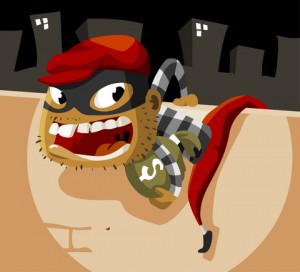On image theft and what to do
2
 It seems the topic of image theft will never lose relevance, with constant reports that someone somewhere has found their images stolen or being used without payment.
It seems the topic of image theft will never lose relevance, with constant reports that someone somewhere has found their images stolen or being used without payment.
The first response in such a case should be to try contacting the infringer directly. There is relatively little information about image licensing on the internet, and many people simply do not realize that images are sold under different types of licenses, while some such infringers are not even aware that microstocks exist online to officially sell images.
If infringers are informed in time, it will not only stop the unlawful use of images, but may also help bring a new customer to microstocks.
By the way, include a referral link to microstocks when writing to infringers, so it becomes possible not only to earn from image sales but also to receive additional referral royalties from bringing in a stock photo buyer.
Not long ago, the Shutterstock stock site contacted a company that had purchased the wrong type of license for downloaded images. As a result, this step by Shutter led to an increase in Extended licenses for many microstock contributors.
And overall, most people are fairly honest and want to do the right thing. The task is to help them learn and understand what is right and what is not!
Guilty of theft or not?
Alright, it is admitted that sometimes people are not so innocent and openly steal images to share, sell, bulk up, and increase the number of their images on Flickr or another photo‑sharing site.
If there is no response after the first contact with the infringer, then it is time to act more decisively.

Complaints via microstock sites
If the stolen image was sold through a microstock, contact the stock site and explain the situation.
Provide links to the image authored by the complainant and to the opponent’s image that is believed to have been stolen.
Most microstocks have a support or contact button at the bottom of each page. Microstocks act quickly against infringers, so the copy of the image will be removed very soon.
Reporting content theft on Flickr
Most websites that host users’ photos and illustrations will gladly cooperate and remove illegal content from their resources, and Flickr is no exception.
Here is an excerpt from Flickr’s rules:
Copyright infringement.
If photos or videos personally created are found in other users’ portfolios, do not panic. It is most likely a misunderstanding without ill intent. It is best to try contacting the author whose portfolio contains the disputed image and politely ask to remove it.
If this does not work, please submit a copyright infringement notice to the Yahoo! Copyright Team, which can remove the image.
It may be tempting to write about the violation on a profile or on our public forum, but this is not the best way to resolve potential copyright issues. Such public call‑outs of individuals on Flickr are not encouraged.
If Flickr confirms that the image was stolen, which is usually the case, then Flickr will remove the image from the site. If the author’s portfolio is dominated by questionable works, the entire account will be deleted.
In the message sent to Flickr, include page addresses and other necessary information for review; this information can be checked with Kevin Hasley.
Reporting content thieves to Google
If a website publishes images without consent, report it to Google. This will not remove the site or image from the internet, but Google will remove the infringing site from its search results, which, given the search engine’s global priority, will significantly reduce the site’s traffic.
To obtain a support link and the list of required information for communicating with Google, as well as to clarify the approximate content of a copyright notice, refer again to Kevin Hasley’s site.
Reporting content thieves to web hosting
Most websites are hosted by web hosting providers. To find out which host a site uses, online services to look up site information via ‘whois’ can be used.
After finding information about the infringing site, send a letter informing them of the violation.
Different hosts have different policies regarding copyright compliance, but if a site hosts content belonging to the rights holder, the host must provide all possible assistance to remove such information.
Also remember that a host needs a “reasonable time frame” to respond appropriately.
Any other ways to protect intellectual property? Share them in the comments.
Source link:
Author: Tyler Olson
Link: blоg.microstockgroup.com/help-my-image-has-been-stolen-what-next/




I wonder where the author got the photos for this article…
Well, you can ask him the question. There’s a link to the original article at the very end.